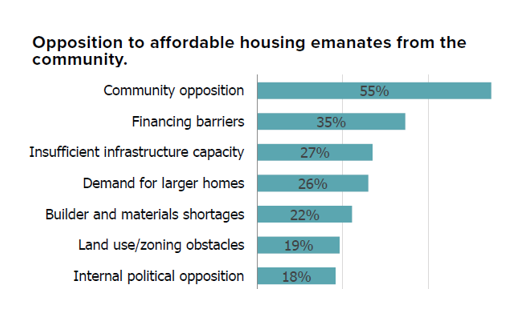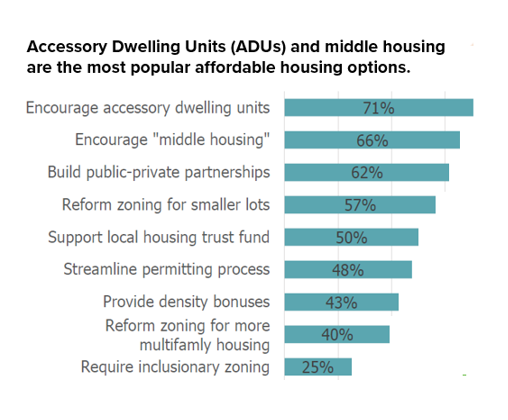The Utah Foundation’s vision is to encourage “Empowered civic engagement as the foundation for enhanced quality of life in Utah.” To accomplish this, its mission is to “Inform and engage with illuminating, independent, nonpartisan public policy research.” Given that housing was the top issue for voters in the 2024 Utah Priorities Project, there is perhaps no better topic on which to inform and engage Utahns.
In broader response to this concern about housing, many in the public sector are attempting to utilize policy levers to help make housing more affordable in Utah. To understand these levers, this report explores – with the help of survey responses – the perspectives of municipal officials and staff concerning the provisioning for affordable housing in general. It then discusses how to best spark civic dialogue between municipal officials and residents about housing diversity and affordability. The report addresses general messaging strategies and techniques to address residential concerns while seeking to improve communication between residents, mayors, city council members, and city planners. Finally, the report concludes with a discussion of the type of housing diversity Utahns want in the present and may wish for in the future.
HIGHLIGHTS OF THE SURVEY AND THIS REPORT
- “Affordable housing” is understood by municipal officials to mean a variety of things, from simply “low quality” and “dense” housing to more technical definitions based on local area median income. This likely parallels many residents’ perceptions.
- Municipal officials and staff recognize a shortage of diverse housing options and appreciate the need for accessory dwelling units (71%), encouraging “middle housing” (66%), and smaller lots (57%).
- Many municipal officials and staff seem to oppose Utah’s Moderate Income Housing Plan requirement, some of whom perceive it as a heavy-handed, state-level intervention that is less well-suited to rural and suburban municipalities.
- Many municipal officials and staff see the most substantial barrier to affordable housing as emanating from community opposition (56%).
- Most survey respondents (79%) say that municipal officials who pursue affordable housing over resident concerns face political consequences.
- Modifying the nature and content of the dialogue between municipal officials and communities can increase the availability of housing diversity in various communities across the state.




